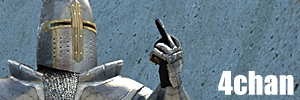Board: /a/ - Anime & Manga /adv/ - Advice /an/ - Animals & Nature /b/ - Random /c/ - Anime/Cute /cgl/ - Cosplay & EGL /ck/ - Food & Cooking /cm/ - Cute/Male /co/ - Comics & Cartoons /d/ - Hentai/Alternative /diy/ - Do-It-Yourself /e/ - Ecchi /fa/ - Fashion /fit/ - Health & Fitness /g/ - Technology /gif/ - Animated GIF /h/ - Hentai /hc/ - Hardcore /hm/ - Handsome Men /hr/ - High Resolution /int/ - International /jp/ - Otaku Culture /k/ - Weapons /lit/ - Literature /m/ - Mecha /mlp/ - Pony /mu/ - Music /n/ - Transportation /o/ - Auto /p/ - Photography /po/ - Papercraft & Origami /pol/ - Politically Incorrect /r/ - Request /r9k/ - ROBOT9001 /s/ - Sexy Beautiful Women /sci/ - Science & Math /soc/ - Social /sp/ - Sports /t/ - Torrents /tg/ - Traditional Games /toy/ - Toys /trv/ - Travel /tv/ - Television & Film /u/ - Yuri /v/ - Video Games /vg/ - Video Game Generals /vp/ - Pokemon /w/ - Anime/Wallpapers /wg/ - Wallpapers/General /x/ - Paranormal /y/ - Yaoi /3/ - 3DCG

